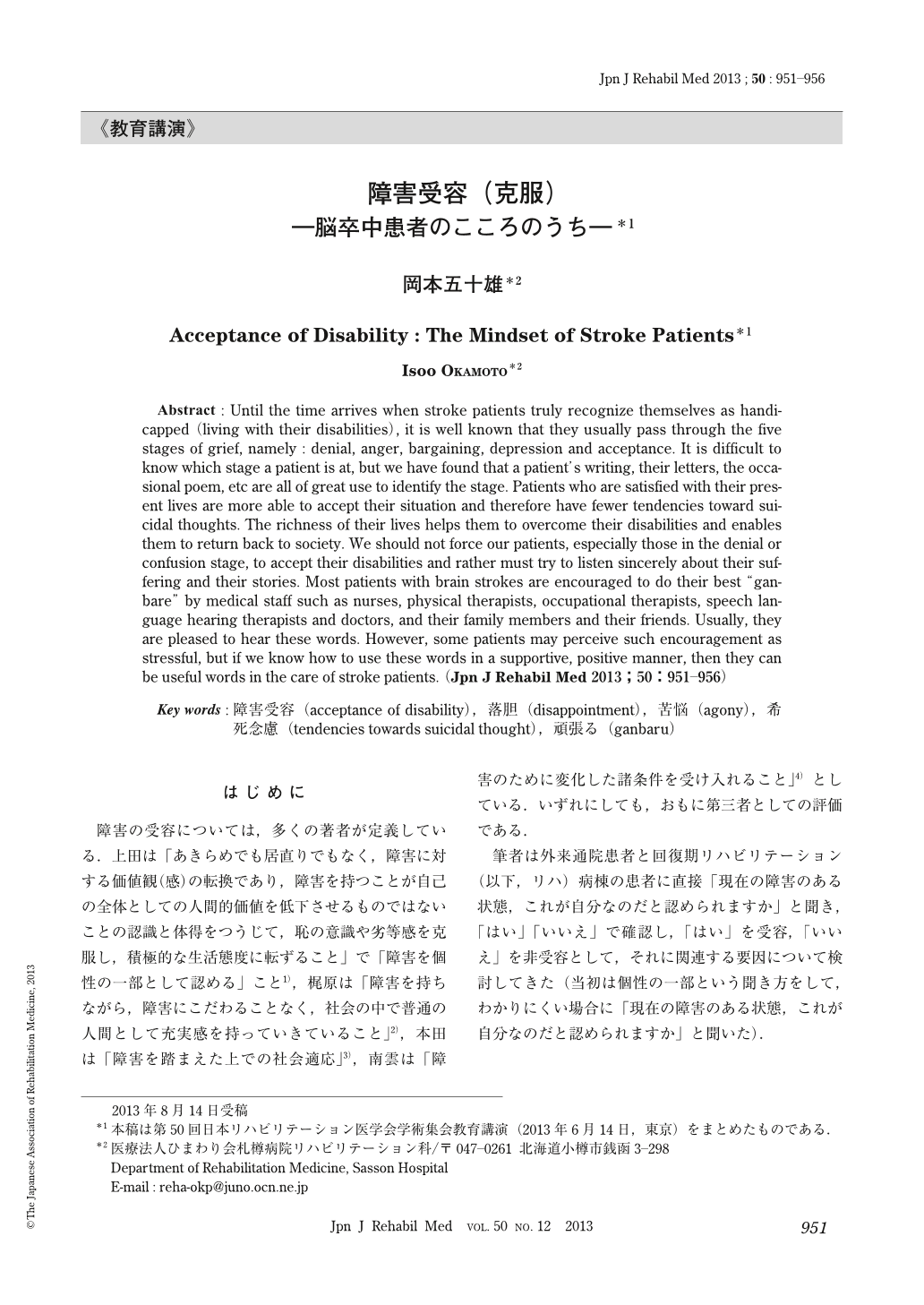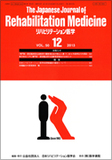Japanese
English
- 販売していません
- Abstract 文献概要
- 1ページ目 Look Inside
- 参考文献 Reference
はじめに
障害の受容については,多くの著者が定義している.上田は「あきらめでも居直りでもなく,障害に対する価値観(感)の転換であり,障害を持つことが自己の全体としての人間的価値を低下させるものではないことの認識と体得をつうじて,恥の意識や劣等感を克服し,積極的な生活態度に転ずること」で「障害を個性の一部として認める」こと1),梶原は「障害を持ちながら,障害にこだわることなく,社会の中で普通の人間として充実感を持っていきていること」2),本田は「障害を踏まえた上での社会適応」3),南雲は「障害のために変化した諸条件を受け入れること」4)としている.いずれにしても,おもに第三者としての評価である.
筆者は外来通院患者と回復期リハビリテーション(以下,リハ)病棟の患者に直接「現在の障害のある状態,これが自分なのだと認められますか」と聞き,「はい」「いいえ」で確認し,「はい」を受容,「いいえ」を非受容として,それに関連する要因について検討してきた(当初は個性の一部という聞き方をして,わかりにくい場合に「現在の障害のある状態,これが自分なのだと認められますか」と聞いた).
Abstract : Until the time arrives when stroke patients truly recognize themselves as handicapped (living with their disabilities), it is well known that they usually pass through the five stages of grief, namely : denial, anger, bargaining, depression and acceptance. It is difficult to know which stage a patient is at, but we have found that a patient's writing, their letters, the occasional poem, etc are all of great use to identify the stage. Patients who are satisfied with their present lives are more able to accept their situation and therefore have fewer tendencies toward suicidal thoughts. The richness of their lives helps them to overcome their disabilities and enables them to return back to society. We should not force our patients, especially those in the denial or confusion stage, to accept their disabilities and rather must try to listen sincerely about their suffering and their stories. Most patients with brain strokes are encouraged to do their best “ganbare” by medical staff such as nurses, physical therapists, occupational therapists, speech language hearing therapists and doctors, and their family members and their friends. Usually, they are pleased to hear these words. However, some patients may perceive such encouragement as stressful, but if we know how to use these words in a supportive, positive manner, then they can be useful words in the care of stroke patients.

Copyright © 2013, The Japanese Association of Rehabilitation Medicine. All rights reserved.


